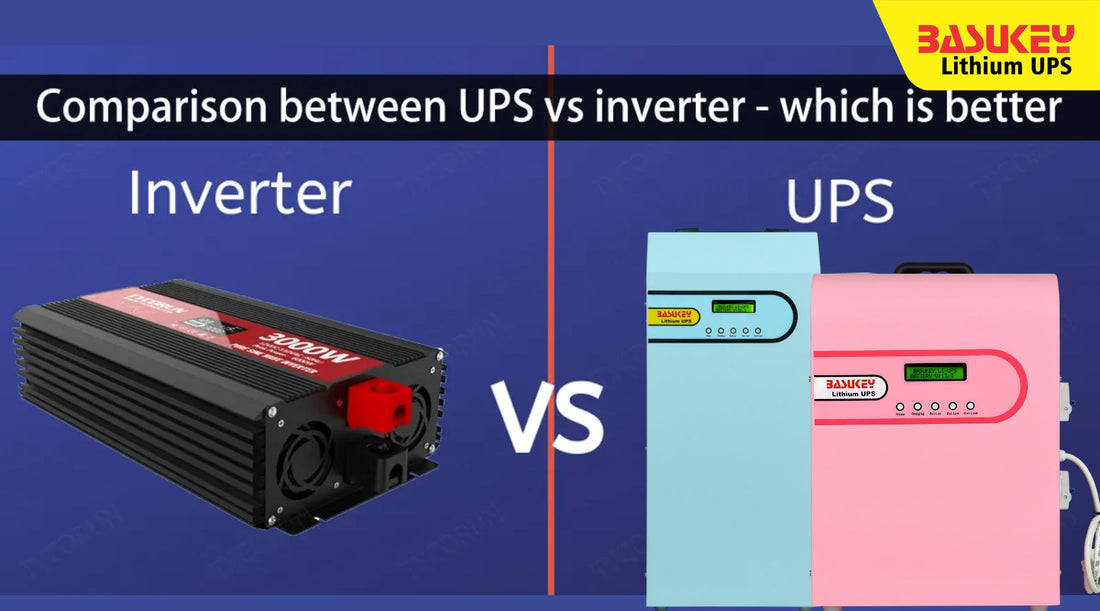
Inverter vs. Lithium UPS: Understanding the Differences in Power Backup Solutions
Share
When it comes to ensuring uninterrupted power supply during outages, choosing the right backup solution is crucial. Inverters and Lithium UPS systems are two popular options, each with its own set of advantages and disadvantages. Let's dive into the differences between these power backup solutions to help you make an informed decision.
What is an Inverter?
An inverter is a device that converts DC (direct current) power from batteries into AC (alternating current) power, which is used to run household appliances during power cuts. Inverters are commonly used in homes, offices, and small businesses to provide backup power.
What is a Lithium UPS?
A Lithium UPS (Uninterruptible Power Supply) is a system that not only converts DC power from batteries to AC power but also provides surge protection and regulates voltage fluctuations. Lithium UPS systems are known for their high efficiency, longer lifespan, and faster charging times compared to traditional lead-acid UPS systems.
Key Differences
One of the main differences between an inverter and a Lithium UPS is the type of battery used. Inverters typically use lead-acid batteries, which are affordable but have a shorter lifespan and slower charging times. On the other hand, Lithium UPS systems use lithium-ion batteries, which are more expensive but offer higher energy density, faster charging, and longer cycle life.
Another key difference is the efficiency of the two systems. Lithium UPS systems are known for their high efficiency, typically above 90%, which means they waste less energy during the conversion process compared to inverters. This higher efficiency translates to lower electricity bills and reduced environmental impact.
Which is the Better Choice?
Choosing between an inverter and a Lithium UPS depends on your specific requirements and budget. If you are looking for a cost-effective solution for short power outages and are willing to compromise on efficiency and lifespan, an inverter may be suitable for you. However, if you prioritize energy efficiency, faster charging times, and longer lifespan, investing in a Lithium UPS system may be the better choice in the long run.
Ultimately, both inverters and Lithium UPS systems serve the purpose of providing backup power during outages. By understanding the differences between these two power backup solutions, you can make an informed decision based on your needs and preferences.
